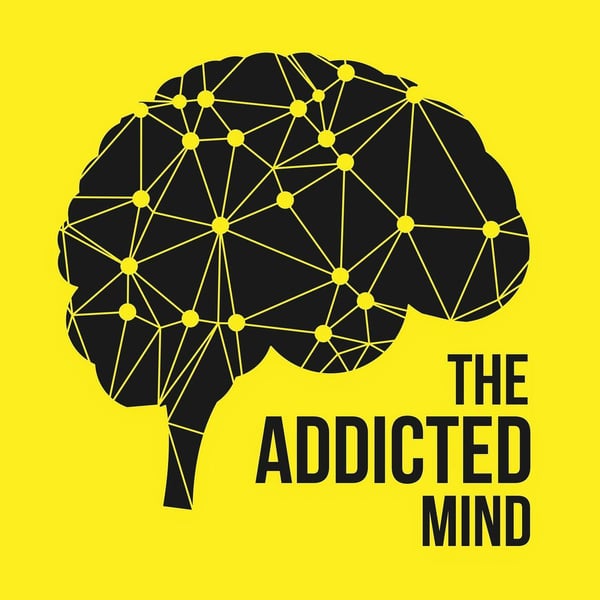19: Sacrificial Helpers Syndrome with Katie Vernoy
The Addicted Mind Podcast
Duane Osterlind, LMFT
4.8 • 621 Ratings
🗓️ 30 November 2017
⏱️ 29 minutes
🧾️ Download transcript
Summary
In this episode, we talk about sacrificial helpers’ syndrome, great for people who are in the helper profession or volunteer helpers. Sacrificial help syndrome can be defined as people giving more than they have for the people they serve.
Our guest today is Katie Vernoy. A licensed family therapist, a coach, and consultant with helpers based in Torrance, California. As she says, she helps helpers to help better.
Most people who’ve had traumatic experiences that completely changed their lives can end up with this syndrome because they just want others to get through it better than they did and in between that they don't think of taking care of themselves.
For therapists, they put their own needs at bay and focus on what other people need and how they can help them. Working past normal working hours, neglecting own self-care practices, scheduling in clients during personal time, foregoing meals just to help someone out are mostly signs that you're sacrificing yourself too much.
Katie’s experience came about when she was working in public mental health. She worked extra hours, focused more on her staff and clients, and she burned out because she was so passionate about what she was doing to the point of neglecting self-care. After going out solo, she realized it was important for helpers to take care of themselves because if not, eventually, the help they offer won't be available.
Within the profession, it’s often expected of you to be overly benevolent out of the goodness of your heart, so when you ask for money, or set limits and say no sometimes there can be a backlash from the society. It's expected of you to do this. However, part of your helping has to have some limits because you need to empower people to start their recovery on their own. Access if the client’s emergency call is a crisis or if it's possible for them to problem-solve on their own and practice self-soothing techniques. Yes, it’s hard to say no to a client at a critical moment, but learning to set limits helps tremendously in improving your service.
Most often than not, when you started feeling as though your clients should cancel on appointments or grumpy, or you feel fatigued and burned out, it's a sign that you’ve started or are giving too much already. At this point, you can't care much anymore, and it's a clear sign that you should take some time off and do some consultation. Never risk your recovery for someone else’s.
The first recovery of the syndrome is recognizing you’ve got a problem. You should then address it efficiently and start making time for yourself. Set aside some time to do some mandatory extracurricular activities, e.g., meeting up a friend, shopping, surfing, etc. Make sure you hold yourself accountable or find an accountability partner. Accountability will help you make better choices and get some well-deserved rest. You're valuable, take care of yourself.
Support this podcast at — https://redcircle.com/the-addicted-mind-podcast/donations
Learn more about your ad choices. Visit megaphone.fm/adchoices
See Privacy Policy at https://art19.com/privacy and California Privacy Notice at https://art19.com/privacy#do-not-sell-my-info.
Transcript
Click on a timestamp to play from that location
| 0:00.0 | Hello, everyone. Welcome to episode 19 of the Addicted Mind podcast. My name is Dwayne Austerlund, |
| 0:12.8 | and I'm your host. Our guest today is Katie Vernoy, and she is going to talk about |
| 0:18.5 | sacrificial helper syndrome. |
| 0:26.1 | And man, I have to say in doing this episode, I really saw myself in it. And it really made me take a second look at my own life with regards to helping others |
| 0:32.6 | and how I may need to practice a little more self-care. |
| 0:36.7 | So I hope you guys enjoy. |
| 0:38.5 | I think this episode is really going to be great for anybody who's in the helper profession, |
| 0:43.1 | but also people who are helpers or volunteer helpers, people who are sponsors or work in the recovery |
| 0:52.3 | field on a volunteer basis |
| 0:54.2 | or maybe work in 12-step programs or other support groups. |
| 0:58.7 | Often we can get caught up in helping others at a risk to ourselves. |
| 1:03.5 | And I definitely saw myself in this a lot in this episode. |
| 1:07.0 | So I really hope you guys enjoy it. |
| 1:09.2 | And let's just get right to it. |
| 1:11.8 | Here's the episode. |
| 1:21.5 | All right, everyone. |
| 1:22.8 | Welcome to the Addicted Mind podcast. |
| 1:25.5 | My guest today is Katie Frenoy and she is going to talk about something |
| 1:30.1 | I think is kind of important in the helping profession, and that's sacrificial helper syndrome. |
| 1:36.9 | Katie, you want to introduce yourself? Sure. Thanks for having me, Dwayne. I'm so excited to be able to talk to you |
| 1:41.8 | in your audience. So I'm Katie. I am a therapist, a licensed |
| 1:46.7 | immersion family therapist. I have a practice in Torrance, California. I also am a coach and consultant |
... |
Please login to see the full transcript.
Disclaimer: The podcast and artwork embedded on this page are from Duane Osterlind, LMFT, and are the property of its owner and not affiliated with or endorsed by Tapesearch.
Generated transcripts are the property of Duane Osterlind, LMFT and are distributed freely under the Fair Use doctrine. Transcripts generated by Tapesearch are not guaranteed to be accurate.
Copyright © Tapesearch 2025.

